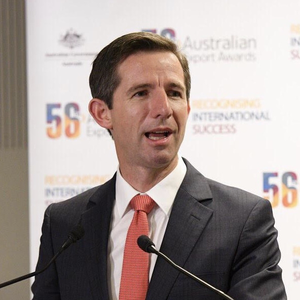
Simon Birmingham
Shadow Minister for Foreign AffairsSenator the Hon Simon Birmingham has served as a Liberal Party Senator for South Australia since May 2007 and is the current Leader of the Opposition in the Senate. Under the Morrison Government Simon was appointed to position of Minister for Finance and Leader of the Government in the Senate after serving as Minister for Trade, Tourism and Investment. Prior to which he served as the Minister for Education and Training, Assistant Minister in the education portfolio and before that as Parliamentary Secretary to the Minister for the Environment and Shadow Parliamentary Secretary for the Murray-Darling Basin and the Environment.
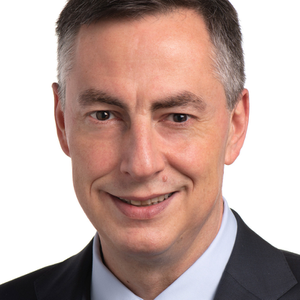
David McAllister
Chair of the Committee on Foreign Affairs at European ParliamentIn the European Parliament, David James McAllister is Chair of the Committee on Foreign Affairs, substitute member of the Committee on International Trade and the Sub-Committee on Security and Defence, member of the Delegation for Relations with the USA and the Delegation for Relations with the NATO Parliamentary Assembly and substitute member of the EU-Serbia Stabilisation and Association Parliamentary Committee.
McAllister was born in Berlin on 12 January 1971. His father was from Glasgow and, as civilian official for the British Army, was stationed at a number of bases in Germany from 1955 onwards; prior to that, he had served in the 51st (Highland) Division of the British Armed Forces during the Second World War. His mother was a teacher of German and music. David and his two sisters grew up in Berlin-Charlottenburg. He was raised bilingually in German and English, and initially went to a British primary school. In 1982 his family moved to Bad Bederkesa in the Cuxhaven region.
David McAllister received a scholarship from the Konrad-Adenauer-Stiftung to study law at the University of Hannover between 1991 and 1996. In 1996 he passed the first state examination in law. After his training as a junior lawyer, he took the second state exam in 1998 and has been a lawyer ever since.
He was Member of the for Lower Saxony parliament from 1998 to 2014, where from 2003 to 2010 he was Chair of the CDU Group. On 1 July 2010, the Lower Saxony parliament elected him Prime Minister of Lower Saxony as Christian Wulff’s successor, an Office which he held until 2013.
At the CDU’s regional party conference on 14 June 2008, McAllister was elected regional Chair of the CDU in Lower Saxony, receiving 98.9% of the votes. He held this Office until 26 November 2016.
In 2014 McAllister was the CDU’s lead candidate in the European Parliament election campaign and was elected MEP. In November 2014, he was elected Vice Chair of the International Democratic Union (IDU) in Seoul and has been Vice President of the European People’s Party since October 2015.
In August 2003 he married the lawyer Dunja McAllister, née Kolleck. The couple have two daughters and live in Bad Bederkesa
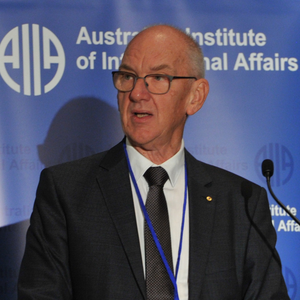
Allan Gyngell
National President at Australian Institute of International AffairsAllan Gyngell AO FAIIA was appointed the National President of the Australian Institute of International Affairs (AIIA) in September 2017, having previously been named a Fellow of the AIIA in 2010. He is an honorary professor with the Australian National University’s College of Asia and the Pacific and a director of China Matters. Mr Gyngell has had an extensive career in Australian international affairs. He was the Director-General of the Australian Office of National Assessments (ONA) from 2009 to 2013. Prior to leading the ONA, he was the founding Executive Director of the Lowy Institute for International Policy from 2003 to 2009. Additionally, he has worked at the Department of Foreign Affairs and Trade and the Department of the Prime Minister and Cabinet, serving as an Australian diplomat in Rangoon, Singapore and Washington. He was Senior Advisor (International) to Prime Minister Paul Keating between 1993 and 1996. Mr Gyngell was appointed as an Officer in the Order of Australia in 2009 for services to international relations. In 2007, he co-authored Making Australian Foreign Policy with Michael Wesley. An updated edition of his history of Australian foreign policy, Fear of Abandonment: Australia in the World Since 1942, was released in 2021. He is the co-presenter of the Australia in the World podcast.
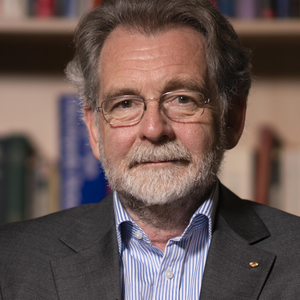
Hugh White
Emeritus Professor of Strategic Studies at ANUHugh White AO FAIIA is Emeritus Professor of Strategic Studies at the Australian National University. His work focuses primarily on Australian strategic and defence policy, Asia-Pacific security issues, and global strategic affairs especially as they influence Australia and the Asia-Pacific. He has served as an intelligence analyst with the Office of National Assessments, as a journalist with the Sydney Morning Herald, as a senior adviser on the staffs of Defence Minister Kim Beazley and Prime Minister Bob Hawke, and as a senior official in the Department of Defence, where from 1995 to 2000 he was Deputy Secretary for Strategy and Intelligence, and as the first Director of the Australian Strategic Policy Institute (ASPI). In the 1970s he studied philosophy at Melbourne and Oxford Universities. He was the principal author of Australia’s 2000 Defence White Paper. His major publications include Power Shift: Australia’s future between Washington and Beijing, [2010], The China Choice: Why America should share power, [2012], Without America: Australia’s future in the New Asia [2017], and How to defend Australia [2019].
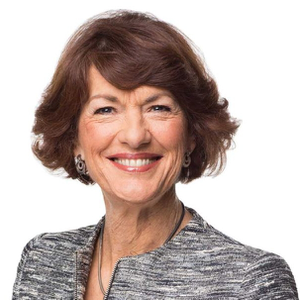
Geraldine Doogue
Senior Presenter at ABCGeraldine Doogue is a renowned Australian journalist and broadcaster with a distinguished career in news and current affairs. She is presenter of the ABC National Radio program Saturday Extra and ABC Television’s Compass. Prior to this, she was the presenter of the ABC Radio National’s Life Matters.
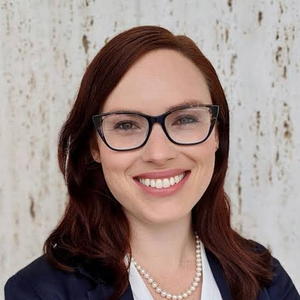
Hayley Channer
Senior Policy Fellow at Perth USAsia CentreDrawing from her background in Defence, Parliament House, think tanks and non-profits, Hayley produces analysis on Australia’s foreign and defence policy in the Indo-Pacific. Based in Canberra, Hayley engages with key Australian Government agencies and other policy stakeholders and builds and sustains the Centre’s domestic and international network. She previously worked for the Department of Defence and has advised senior Australian and US military officials. Hayley has directly advised Australia’s Defence Minister, produced analysis for the Australian Strategic Policy Institute (ASPI), and coordinated government relations for Australia’s largest non-profit organisation, World Vision.
Hayley is a Fulbright Scholar and has held Visiting Fellowships with the Strategic and Defence Studies Centre (SDSC) at the Australian National University and East West Centre in Washington DC. She is frequently quoted in Australian and international media and has been published in the Australian Financial Review, Sydney Morning Herald, Washington Examiner, Canberra Times, The Diplomat Magazine, The Hill, Lowy Interpreter, and ASPI Strategist. She is an alumnus of the US State Department International Visitor Leadership Program (IVLP) and Australia-America Young Leadership Dialogue (AAYLD). Hayley has a Master of International Relations from the University of Queensland and certificate in Public Policy from the London School of Economics.
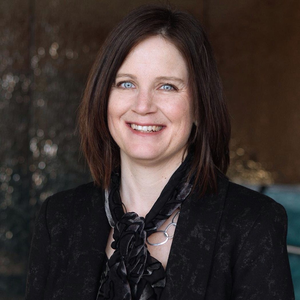
Jacqui True
Director of Monash University’s Centre for Gender, Peace and SecurityProfessor Jacqui True FASSA FAIIA, is Professor of International Relations and Director of Monash University’s Centre for Gender, Peace and Security. She is also a Global Fellow, Peace Research Institute (PRIO), Oslo and received her PhD from York University, Toronto, Canada, and an honorary doctorate from Lund University Sweden in 2018. Previously she held academic positions at Michigan State University, the University of Southern California, and the University of Auckland as well as visiting fellowships at the Australian National University and Gothenburg University, Sweden.
Her current research is focused on the Women, Peace and Security agenda: Understanding the political economy of violence against women, sexual and gender-based violence in conflict in Asia Pacific; and the gender dimensions of violent extremism and conflict. This research is funded by the Australian Research Council, the Australian Department of Foreign Affairs and Trade, and the United Nations. Her book, The Political Economy of Violence Against Women (Oxford, 2012) won the American Political Science Association’s 2012 biennial prize for the best book in human rights, the British International Studies Association International Political Economy book prize in 2013, and the 2015 biennial Australian Political Science Association’s Carole Pateman book prize for gender and politics. Her most recent books are Violence against Women: What Everyone Needs to Know (Oxford, 2020). and with Sara E. Davies of The Oxford Handbook of Women, Peace and Security (2019). In 2021 she was named one of the 100 most influential Person in Gender Policy – for the gender-based violence area.
Expertise related to UN Sustainable Development Goals
In 2015, UN member states agreed to 17 global Sustainable Development Goals (SDGs) to end poverty, protect the planet and ensure prosperity for all.
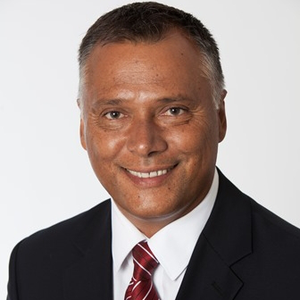
Stan Grant
International Affairs Editor at Australian Broadcasting CorporationStan Grant is the International Affairs Editor for the Australian Broadcasting Corporation, a multi-award winning current affairs host, an author and an adventurer. Well known for having brought the former Prime Minister Malcolm Turnbull to tears when interviewed about Indigenous affairs on The Point, Stan’s keynotes are insightful, engaging, always professional and at times, controversial. Stan Grant’s Aboriginal heritage has shaped his dynamic, resilient personality. Born in Griffith in south-west New South Wales, in 1963, Stan Grant’s mother is from the Kamilaroi people and his father is of the Wiradjuri. Stan spent most of his childhood on the road living in small towns and Aboriginal communities across outback NSW. His father was an itinerant saw-miller who worked when and where he could. Stan moved so often he attended 12 different schools before he was in his teens. The early traveling gave Stan a love of adventure and stories. He grew up listening to the tales of his grandfather and uncles and aunts. Despite poverty and an early sporadic education the security of his family and the larger Aboriginal community gave him a strong platform for life. After attending University, Stan won a cadetship with the Macquarie Radio Network, launching a career in journalism that has spanned more than 30 years and more than 70 countries. In that time Stan has travelled the world covering the major stories of our time from the release of Nelson Mandela, the troubles in Northern Ireland, the death of Princess Diana, war in Iraq, the second Palestinian intifada, the war on terror, the South Asia Tsunami, the Pakistan Earthquake and the rise of China. Stan has hosted major news and current affairs programs on Australian commercial and public T.V. He has been a political correspondent for the ABC, a Europe correspondent for the Seven Network based in London and a senior international correspondent for the international broadcaster CNN based in Hong Kong and Beijing. Returning to Australia in 2013, Stan continued to cover international events for Sky News Australia and reignited his passion for telling the stories of his own indigenous people. He has worked as the Indigenous editor for the Guardian Australia, managing editor for National Indigenous Television and international editor for Sky News. In 2016 Stan Grant was appointed as the special advisor to the then Prime Minister Malcolm Turnbull on Indigenous constitutional recognition.
In 2022, Stan became the solo full-time host of the ABC’s weekly flagship discussion program Q+A. Stan has won many major awards including an Australian T.V Logie, a Columbia University Du-Pont Award (the broadcast equivalent of the Pulitzer Prize), and the prestigious U.S Peabody Award. He is a four-time winner of the highly prized Asia TV Awards including reporter of the year. Stan has written The Tears of Strangers and Talking To My Country (Harper Collins), and has published numerous articles and opinion pieces for The Sydney Morning Herald and The Australian. Stan Grant is passionate about justice and humanity. His years of international reporting has given him a deep understanding of how the world works. He is deeply immersed in the politics and history of Asia and the Middle East. He can link the importance of leadership and the impact of history and above all believes in the power and resilience of people. Stan is married to ABC Sports Broadcaster, Tracey Holmes and has four children. He lives in Sydney.
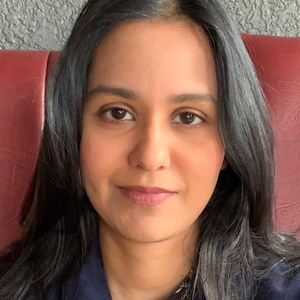
Priya Chacko
Senior Lecturer in International Politics at University of AdelaideDr Priya Chacko is a Senior Lecturer in International Politics in the Department of Politics and International Studies at the University of Adelaide where she teaches courses and supervises research on foreign policy and South Asian politics. She previously held positions at the University of the Witwatersrand, South Africa and Victoria University of Wellington, New Zealand. Her current research projects focus on the impact of market reform on India’s foreign policy and social policy and the intersection of Hindu nationalism, populism and neoliberalism in Indian politics and policy making.
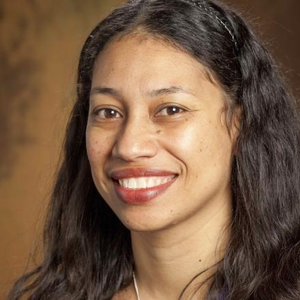
Katerina Teaiwa
Professor at The Australian National UniversityKaterina Teaiwa is Associate Professor in Pacific Studies and Gender, Media and Cultural Studies in the School of Culture, History & Language at ANU. She has a background in anthropology, history, Pacific Islands studies, dance, visual arts, and the natural sciences, and is author of _Consuming Ocean Island: stories of people and phosphate from Banaba_ (Indiana University Press, 2015). Elements of her multi-media exhibition Project Banaba have been shown in Sydney, Napier, Hong Kong, and are upcoming in Auckland in 2021. She is currently Deputy Director HDR Training, in CHL, Co-Chair of the Oceania Working Party of the Australian Dictionary of Biography and Vice-President of the Australian Association for Pacific Studies. She is leading one of CHL’s flagship projects on Decolonising the Academy: trans-Indigenous approaches.
Beyond ANU and her academic work, she is on the Board of the Pacific Cooperation Foundation of Aotearoa, New Zealand.
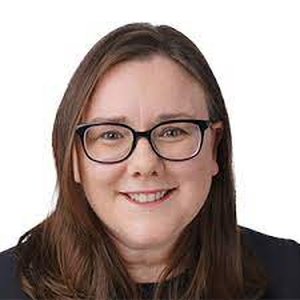
Jo Feldman
Partner at Norton Rose FulbrightJo Feldman is an arbitration and litigation lawyer; with over 17 years' experience working with government and the private sector. She has broad experience in disputes under national laws and international law, and has acted for and against States in investment treaty arbitrations.
Jo is a highly regarded trade and investment lawyer. She was a senior member of the legal team defending Australia's first investor-State arbitration claim, Philip Morris Asia Ltd v Australia, and on Australia's subsequent ISDS claims. She also worked on investor-State arbitration cases while on a Barristers Exchange at Grey's Inn, London. She was a Senior Dispute Settlement lawyer at the World Trade Organization and has extensive experience in WTO disputes, including six WTO disputes brought against Australia and as a Third Party in disputes between the US and China over antidumping, rare earths, intellectual property, and digital products, and assisting the Panel on US – Large Civil Aircraft (2nd Complaint).
Jo has been a negotiator or advisor on most of Australia's Free Trade Agreement negotiations, including the Trans-Pacific Partnership Agreement, and FTAs with China, the EU, Japan, Korea, Malaysia, New Zealand, Singapore, and the UK. She has provided advice across the entire range of trade law issues, including tariffs, anti-dumping, foreign investment, digital services, intellectual property, competition, environment, mining and energy. Jo has been invited by the APEC Secretariat to conduct trade negotiation courses.
Among her roles in government, Jo was the Director of the Investment Law Section at the Department of Foreign Affairs and Trade and the Director of the Brexit Taskforce and Europe Trade Branch providing advice to government and business on the implications of Brexit for Australia. Jo was Australia's representative to the World Intellectual Property Organization (WIPO), and negotiated on emerging issues in intellectual property, including traditional knowledge, vaccine access, and genetic resources. She worked on the Australia - EU Wine Agreement, and amendments to the Patent Act, wine labelling and registration regulations, and the Australia New Zealand Food Standards Code.
In Australia, Jo has acted as Counsel in the Supreme Court of Western Australia, District and Magistrates Courts of Western Australia, and State Administrative Tribunal of Western Australia.
Jo is also experienced in human rights law, and Environmental, Social and Governance (ESG) issues. She was Australia's lead on human rights at the United Nations in New York, and was Vice Chair of the UN Commission on the Status of Women, chairing the negotiation of the Political Declaration to mark the 25th anniversary of the Beijing Declaration and Platform for Action.
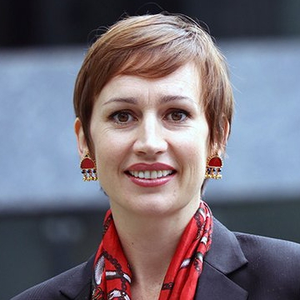
Suzannah Jessep
Director Research and Engagement of Asia New Zealand FoundationSuzannah Jessep joined the Foundation in March 2019, after serving as New Zealand’s Deputy High Commissioner to India, Sri Lanka, Bangladesh and Deputy Ambassador to Nepal and as New Zealand’s Deputy High Commissioner to Vanuatu.
During her thirteen years in the Ministry of Foreign Affairs and Trade, she also served in the Ministry’s Australia, Pacific and Europe Divisions, and in the area of Antarctic and security policy.
She is a Board member of the New Zealand Institute of International Affairs (NZIIA), and sits on the Advisory Boards of Minister Damien O’Connor’s Trade for All Ministerial Advisory Group, the New Zealand Contemporary China Research Centre (NZCCRC) and the New Zealand India Research Institute (NZIRI).
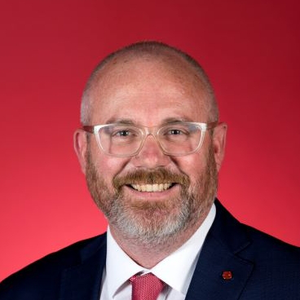
Tim Ayres
Assistant Minister for TradeTim Ayres grew up on a beef cattle farm near Lismore NSW. He attended local public schools and finished high school at Glen Innes High School. His upbringing in the country has made him passionate about serving rural and regional communities.
After graduating from the University of Sydney, where he studied industrial relations, he began a career representing working people; organising diverse groups of workers across the Riverina, from skilled metal trades in country towns, large manufacturing facilities to food processing workers in the Murrumbidgee Irrigation Area and in the apple industry.
In 2000 Tim returned to Sydney to coordinate collective bargaining and representation of maintenance and manufacturing workers in the aviation and defence industries across Australia. In 2010 he was elected as the NSW Secretary of the Australian Manufacturing Workers’ Union.
As a union leader Tim has been at the centre of public policy debates around the future of work and the economy. He is passionate about the role that government can play in creating good jobs in our suburbs and in our regions.
Tim Ayres was elected to the Senate in 2019.
Tim is married, with two teenage children and lives in Sydney.
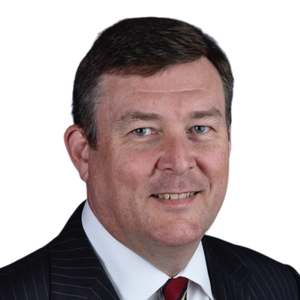
Chris Barnes
Director, Trade Policy and International Relations of Australian Chamber of CommerceChris leads the trade policy and international relations team at the Australian Chamber of Commerce and Industry (ACCI). He is responsible for trade and international policy and relationships with key international partners including the International Chamber of Commerce (ICC), Business at the OECD (BIAC) and the Confederation of Asia-Pacific Chambers of Commerce Industry (CACCI). He also manages the Certificate of Origin (COO) program, which is an important revenue source for ACCI.
Chris is an experienced leader with considerable commercial, policy and representational skills gained in banking and diplomacy, both in Australia and internationally. Prior to joining ACCI, Chris was Australia’s first Consul-General in Indonesia’s second largest city and major commercial hub, Surabaya, with consular responsibility for East Java, Central Java and Yogyakarta.
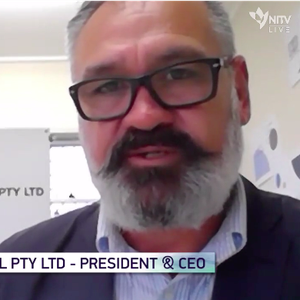
Darren Godwell
CEO of i2i GlobalDarren is the Chief Executive Officer of i2i Global.
He is one of Australia’s most well-credentialled Indigenous executives; experienced in building teams that lift the impact of ventures, frequently tasked with refreshing strategy and business models to achieve impact and viability. Global experience advising the World Bank, Member of Australian New Zealand Indigenous Business Network, Delegate to the World Indigenous Business Network (WIBN), adviser to global media conglomerate Bertelsmann AG and Senior Fellow of NY based Synergos Foundation. Executive education at INSEAD and MIT Sloan School of Management.
Godwell has led companies within the fields of tourism, business, investment and trade, oil and gas, education, health, housing, legal affairs and international development.
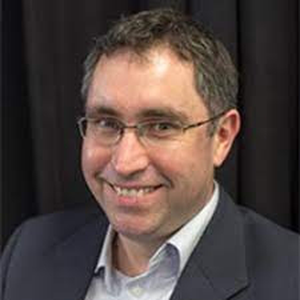
Ian Hall
Professor and Acting Director of Griffith Asia InstituteIan Hall is a Professor of International Relations and the Deputy Director (Research) of the Griffith Asia Institute. He is also an Academic Fellow of the Australia India Institute at the University of Melbourne and the co-editor (with Sara E. Davies) of the Australian Journal of International Affairs. He is the author of three books, including Modi and the Reinvention of Indian Foreign Policy (Bristol University Press, 2019) and Dilemmas of Decline: British Intellectuals and World Politics, 1945-1975 (University of California Press, 2012), and more than seventy journal articles and chapters. His research focuses on India's foreign and security policies and on the history of international thought.
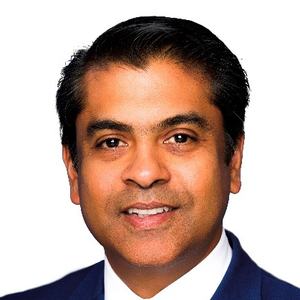
Brendan Augustin
President at Australian Institute of International Affairs of Western AustraliaBrendan Augustin grew up in Penang, Malaysia before moving to Australia as a 17-year-old. He graduated with double degrees in Commerce and Laws from the Australian National University, following which he joined the Department of Foreign Affairs and Trade where he spent almost 15 years. During this time he undertook diplomatic assignments in Indonesia, Malaysia, Brunei and France.
After leaving DFAT, he worked in senior roles in Oil and Gas and Mining, which included international assignments in Mauritania and Timor Leste with Woodside Energy and in Cameroon with Sundance Resources. Brendan returned to Perth in 2013 to work with Woodside where he assumed several roles including General Manager, Government and International Relations in the Corporate Affairs Division and as a General Manager in the Marketing, Trading and Shipping Division.
He left Woodside recently and is now the Managing Director of Bina Group which, among other things, is focused on supporting companies grow its presence in international markets.
He speaks several languages – to varying degrees of proficiency – including French, Indonesian, Malay, Spanish, Tetum and Portuguese. He also has Master of Arts from Monash University.
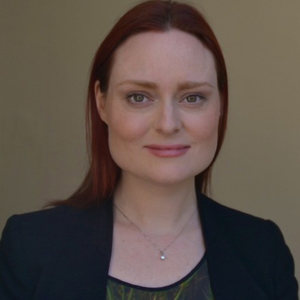
Lauren Richardson
Lecturer at The Australian National UniversityLauren Richardson is a Lecturer in the Department of International Relations. Previously she taught Northeast Asian Relations at the University of Edinburgh. Her research focuses on the role of non-state actors in shaping diplomatic interactions in Northeast Asia, particularly Japan-Korea relations. Her publications have focused on the South Korean anti-nuclear movement; the role of Buddhists in Sino-Japanese rapprochement (with G A. Scott);Japan’s evolving defence posture; and the ascension of “comfort women” in South Korean memory of Japanese imperialism (forthcoming). She is currently completing a book manuscript provisionally entitled Reshaping Japan-Korea Relations: Transnational Advocacy Networks and the Politics of Redress.
Dr Richardson obtained Bachelor’s and Master’s degrees in Asian Studies from Monash University and spent several years studying Japanese and Korean language as part of these programs. She then completed a Master’s in Political Science at Keio University in Tokyo, where she wrote a dissertation in Japanese on the “history problems” in Japan-ROK relations. Her PhD at ANU entailed one year of field work in both Japan and South Korea. She has been a visiting fellow at the Japan Institute of International Affairs and Keio University, a recipient of the Prime Minister’s Australia-Asia Award (2011), and a participant in the US-Korea NextGen Scholars Program (2015-16) and the German Marshall Fund’s Young Strategist Forum (2019). She is currently a member of the Australian Committee of the Council for Security Cooperation in the Asia Pacific (AUS-CSCAP) and a Board Member of the ANU Korea Institute.
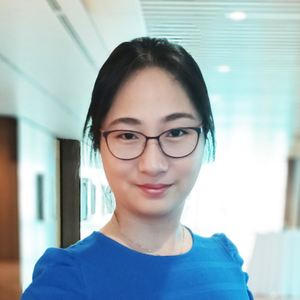
Yun Jiang
AIIA China Matters Fellow at Australian Institue of International AffairsYun Jiang is the inaugural AIIA China Matters Fellow. She was the co-founder and editor of the newsletter China Neican. She is currently a managing editor of the China Story blog. She has published and been cited widely on China-related topics, with a focus on Australia’s policies on the People’s Republic of China.
She is a former researcher in geoeconomics at the Australian National University and a former policy adviser in the Australian Government, having worked in the Department of the Prime Minister and Cabinet, the Treasury and the Department of Defence. Her policy experience covers economics, national security, and foreign policy.
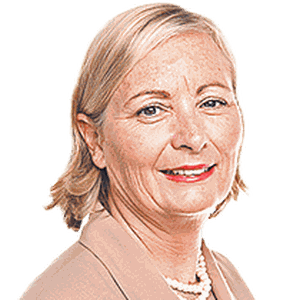
Glenda Korporaal
Writer and Commentator at The AustralianGlenda Korporaal is a Sydney based journalist who writes articles and commentary for The Australian newspaper specialising in business, financial affairs and international relations. She is a former London, Washington and New York correspondent of The Australian Financial Review (AFR) and was the first woman deputy editor of the AFR (1986-1988).
She has been business editor of The Bulletin magazine, editor of The Australian’s monthly business magazine, The Deal, and associate editor (business) of The Australian.
She has a strong interest in Asia, particularly China, since her first visit to the People's Republic of China (PRC) on a 'farm study tour' in 1978. She was the China correspondent for The Australian in 2018 and 2019. She has lived and worked in Hong Kong (2001-2003) and Singapore (1998-1999).
She has had a strong interest in the Olympics having covered Games in Atlanta (1996), Nagano (1998), Sydney (2000), Athens (2004), Beijing (2008) and London (2012).
She is the author of several books including Making Magic. The Marion Mahony Griffin Story, An Olympic Life (with Kevan Gosper), The Bid. How Australia won the 2000 Games (with Rod McGeoch), The AARNet Story, 20 years of the internet in Australia, and Yankee Dollars. The Story of Australian Investment in the US.
She holds a Bachelor of Commerce from the University of New South Wales (UNSW) and a Master of Arts (Economics) George Washington University, Washington DC.
She was awarded an OAM for her contribution to print journalism in the Australia Day honours of January 2019.
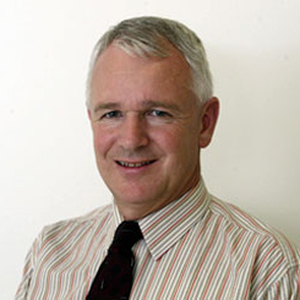
Rowan Callick
Melbourne based author and columnist Rowan Callick is an Industry Fellow at Griffith University's Asia Institute.
He grew up in England, graduating with a BA Honours from Exeter University. He worked for a daily newspaper in the north east before moving in 1976 to Papua New Guinea, where he became general manager of a locally owned publishing, printing and retail group. In 1987 he moved to Australia, working for almost 20 years for The Australian Financial Review, finally as Asia Pacific Editor. He was China Correspondent for the AFR, based in Hong Kong, from 1996-2000. From 1990-1992 he was a senior writer with Time magazine. He joined The Australian at the start of 2006, as China Correspondent. After three years in Beijing, he became The Australian's Asia-Pacific Editor in 2009. He returned to Beijing as China Correspondent from the start of 2016 to mid 2018, when he left The Australian to develop a new role as a public speaker, author and columnist - continue to write regularly for the newspaper.
He was appointed in 2013 a Fellow of the Australian Institute of International Affairs. He was a member of the National Advisory Council on Aid Policy from 1994-96, a board member of the Australia Indonesia Institute from 2001-2006, and a member of the Foreign Minister's Foreign Affairs Council from 2003-2006. He is a member of the Advisory Boards of La Trobe University's Asia institute and of its China Studies Department. He is a governor of the Foundation for Development Cooperation. He is an examining chaplain for the Anglican Archdiocese of Melbourne.
He has published three books published in both English and Chinese: "Comrades & Capitalists: Hong Kong Since the Handover" in 1998 by the University of NSW Press; "Channar: A landmark venture in iron ore"; and “Party Time: Who Runs China and How” published in February 2013 by Black Inc in Australia, then internationally in September 2013 by Palgrave Macmillan as "The Party Forever". He won the Graham Perkin Award for Journalist of the Year for 1995, and two Walkley Awards, for Asia-Pacific coverage, for 1997 and 2007. He was awarded an OBE on recommendation of the Papua New Guinea Government in 2015. He is married with two children.
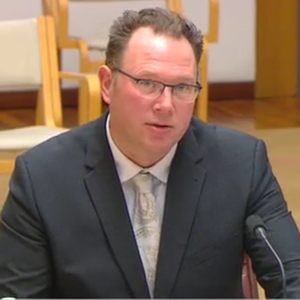
Bryce Wakefield
National Executive Director of Australian Institute of International AffairsDr Bryce Wakefield is the national executive director of the Australian Institute of International Affairs and a visiting fellow at the Australian National University. He has lived, worked and researched in the United States, Japan, Europe and New Zealand. He trained as a political scientist with particular expertise in International Relations and the international affairs of East Asia.
From 2008 to 2012 Bryce was the associate responsible for Northeast Asian programs at the Woodrow Wilson International Center for Scholars in Washington, DC. In this role, he was responsible for conceiving, designing and organising around 60 events in Washington, including policy briefings in the U.S. Congress, on political issues in Australia, Taiwan, North and South Korea and Japan. He co-organised, with the Wilson Center’s partners, three major annual policy conferences in Tokyo. He has also given talks in Japanese, including for parliamentarians at the National Diet.
He was also a university lecturer with tenure in area studies and international relations at Leiden University in the Netherlands. While at Leiden from 2012-2018 he taught numerous classes on the foreign policy and domestic politics of Japan, the politics of East Asia, comparative politics, and the relationship between politics and culture. He designed and implemented a successful specialization on culture and politics for Leiden’s graduate program in International Relations. During his time as a university academic he also delivered training, induction and briefing sessions for Dutch and international diplomats in the Hague and in Japan.
Bryce is regularly quoted in the media. His work and views on political issues in Asia and Australasia have appeared in such outlets as BusinessWeek, Der Spiegel, Financial Times, SCMP, the Telegraph, de Volkskrant and the Washington Times, as well as on the ABC, ACN, SBS, BBC News, CNBC, CSPAN, 7News Australia, and Sky News Australia and in such Japanese outlets as the Daily Yomiuri, NHK and the Sankei Shimbun. In February 2015, the Tokyo bureau chief of the New York Times named him as one of 10 “influential and reliable intellectuals” outside Washington who could help policymakers better know Japan.
Bryce’s academic publications to date focus on constitutional issues and defence policy, political marketing and national identity in Japan. While at the Wilson Center, he also edited and contributed to several of the centre’s multi-author publications on East Asian politics and foreign policy. He has also written on New Zealand’s foreign policy and has been called to the Australian Senate Foreign Affairs and Defence References Select Committee to give expert testimony.
Bryce lived in Japan from 1998 to 2004 and earned his master’s degree from Osaka University’s School of International Public Policy. He earned his PhD in political studies from the University of Auckland.
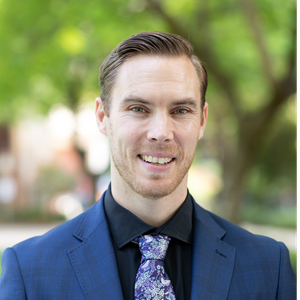
Naoise Mcdonagh
President at Australian Institute of International Affairs South Australia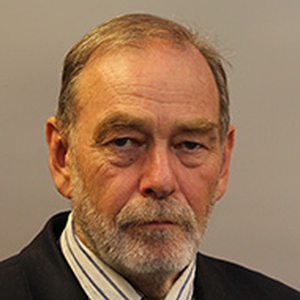
Graeme Dobell
Journalist at Australian Strategic Policy InstituteA journalist since 1971, Graeme Dobell writes on Australian foreign policy and defence. He is Journalist Fellow with the Australian Strategic Policy Institute, writing a weekly column for ASPI’s digital magazine, The Strategist, since 2013. In 2021, he wrote an intellectual history of ASPI’s work over its first two decades: An informed and independent voice: ASPI, 2001-2021.
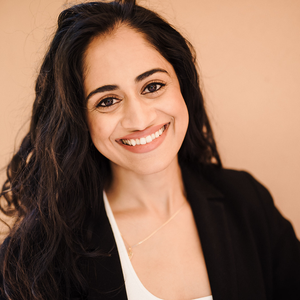
Sonia Arakkal
Co-Founder of Think ForwardSonia Arakkal is co-founder of Think Forward, a think tank focused on intergenerational fairness. Most recently she was a Policy Fellow at the Perth USAsia Centre where she worked on Australia's economic engagement in the Indo Pacific with a special focus on Australia India relations. She was a 2022 delegate to the Australia India Youth Dialogue and comments regularly on Australian TV, print and radio on public policy. She was previously a political staffer for state and federal parliamentarians. Sonia holds a BA in international relations and an LLB with honours from the ANU. She will be undertaking an MBA at INSEAD in 2023.
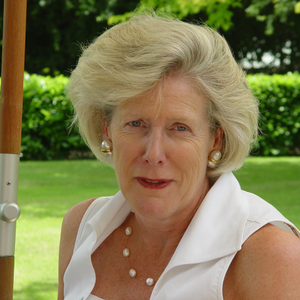
Zara Kimpton (MC)
National Vice President at Australian Institute of International AffairsZara Kimpton OAM is the master of ceremony for the AIIA National Conference. She was appointed National Vice President of the Australian Institute of International Affairs in 2010. She completed her BA in Political Science, Fine Arts and Economics at Melbourne University. She subsequently pursued a career in stockbroking with William Noall & Son in Melbourne, the mining/investment industry with Consolidated Gold Fields Australia in Sydney and banking with Banque Nationale de Paris in Melbourne. She then worked in New York in the interior design industry and later ran her own business in this field in Melbourne. Zara joined the council of the Australian Institute of International Affairs Victoria in 1997 and was President from 2003 to 2006. She was made a life member of AIIAV in 2007. She has been involved in AIIAV study tours to South Africa (1996), Sri Lanka (2003), Russia (2008), Vietnam (2001) and China (2012) and led the tours to South America (2000) and Indonesia (2009). Zara chaired the national Fundraising Task Force in 2007 and is now the National Patron of the Friends of the AIIA. She has also represented the AIIA at conferences in Malaysia, Japan, Republic of Korea and the United Kingdom and in 2017 was a delegate to the Women 20 (W20) summit in Germany. She was the leader of the Australian delegation to the W20 Argentina 2018 summit and the Japan W20 2019 summit. She is currently a joint proprietor of a cattle and sheep station in north-eastern Victoria. Apart from international affairs her main interests are travel, the arts, tennis, horse riding, hiking, and speaking French. In 2011 Zara was awarded the Medal of the Order of Australia (OAM) for service to international relations through executive roles with the Australian Institute of International Affairs Victoria.
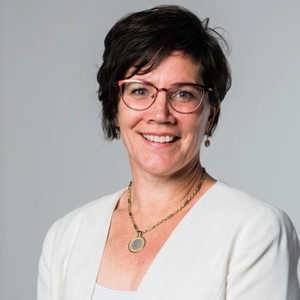
Caitlin Byrne
Pro Vice Chancellor (Business) at Griffith UniversityThis speaker is scheduled for the masterclasses on 23 October. Masterclasses are open to sponsored participants and successful applicants.
As Pro Vice Chancellor (Business), Griffith University, I am committed to the delivery of contemporary business education and scholarship that delivers a more sustainable, inclusive and prosperous future for communities across the globe. Having spent the past five years leading the University's research and engagement agenda related to strategic developments in Asia and the Pacific as Director of the Griffith Asia Institute, I bring a global leadership outlook, strengths in building multi-stakeholder partnerships, and a commitment to diversity.
I began my professional career as a diplomat with the Australian Government. In the years since I have worked across senior leadership roles in government, industry and community to become recognised as one of Australia's leading academic-practitioners with a focus on international policy and diplomatic practice. I actively contribute to international policy development, and deliver executive education and training in diplomacy through Australia's Diplomatic Academy and other global forums.
Today, I represent Queensland on the National Reference Group for the Australian Consortium for 'In-Country' Indonesian Studies (ACICIS), and hold appointments to the Australian Government's Sports Diplomacy Advisory Council, and the AP4D Advisory Board. As a champion for gender equity and empowerment, I currently lead Australia's civil society delegation to the W20. I also sit on Queensland Fulbright Scholarships Committee and on the international advisory council for the International Relations Institute of Cambodia. I am an editorial board member for the Hague Journal of Diplomacy, East Asia Policy, and am co-editor of Palgrave Macmillan's Global Series on Public Diplomacy.
In 2020, I was made Fellow of the Australian Institute of International Affairs (FAIIA) for my contribution to international education and Australia's engagement in the Asia-Pacific. In 2021 I received special commendation from the Japanese Consulate-General in Brisbane for my contribution to bilateral Australia-Japan relations. I am a Faculty Fellow of the University of Southern California's Centre for Public Diplomacy (CPD).
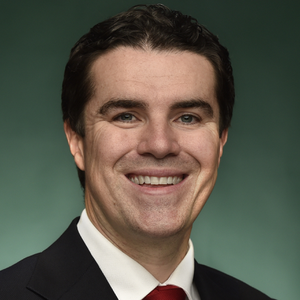
Tim Watts
Assistant Minister for Foreign AffairsThis speaker is scheduled for the masterclasses on 23 October. Those classes are only open to sponsored participants or those that have been notified that their application to the classes has been successful.
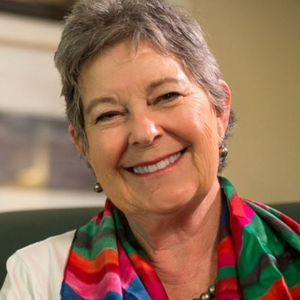
Sue Boyd
Veteran DiplomatThis speaker is scheduled for the masterclasses on 23 October. Masterclasses are open to sponsored participants and successful applicants.
Sue Boyd’s whole life has been international. Born in India into a Raj British and British Army family which moved around the world – to the United Kingdom, Ireland, Germany, Egypt, Cyprus – she embraced change and was educated in thirteen schools in five different countries, learning several languages. Upon leaving school in England in 1964, she volunteered for a year, teaching in Africa. She and her family migrated to Western Australia in 1966. At the University of Western Australia she completed a bachelor of arts degree in English and politics and a postgraduate diploma in education while working part-time as a journalist at the Perth Daily News. She was energetic in student political life and was the first woman elected president of the Guild of Undergraduates. The University of Western Australia gave her an honorary doctorate. In 1970, she joined the Department of External Affairs in Canberra and played a pioneering and ongoing role in improving the status of women. In her 34-year career in the Australian foreign service she was head of Australian diplomatic missions in Bangladesh, Vietnam, Hong Kong and Fiji and worked in other roles in Portugal, East Germany, the United Nations in New York and DFAT offices in Canberra and Sydney. She retired from the foreign service in 2003 and settled in Perth, Western Australia. She has worked with the Argyle diamond mine and the Miriuwung and Gidja communities in the East Kimberley. She has been on commercial, not-for-profit and educational boards, she mentors other women and students, she has lectured at the University of Western Australia and Murdoch University, she rejuvenated the Australian Institute of International Affairs in WA, and she works as a senior executive business coach.
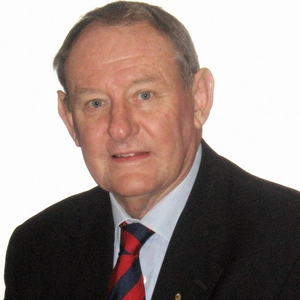
Ric Smith
Former Secretary at Department of DefenceThis speaker is scheduled for the masterclasses on 23 October. Masterclasses are open to sponsored participants and successful applicants.
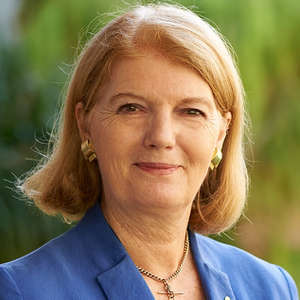
Penelope Wensley
Former Ambassador to the United NationsThis speaker is scheduled for the masterclasses on 23 October. Masterclasses are open to sponsored participants and successful applicants.
The Honourable Dr Penelope Wensley AC was born in Toowoomba and completed a Bachelor of Arts degree with First Class Honours at the University of Queensland in 1967. In 1968, Ms Wensley joined the Australian Foreign service and pursued a highly distinguished career as a diplomat, representing Australia in a wide range of overseas posts and senior policy positions until 2008, when she became Queensland’s twenty-fifth Governor.
Among her prestigious diplomatic appointments, she served as Australia’s Ambassador to the United Nations for seven years, in both Geneva and New York, as Ambassador for the Environment, High Commissioner to India and Ambassador to France. She has been awarded honorary Doctorates by The University of Queensland, Griffith University, JCU (James Cook University), and the Queensland University of Technology.
In 1994, The University of Queensland named her as the first woman Alumnus of the Year. In 2001, Penelope was made an Officer of the Order of Australia (AO), for her distinguished contributions to Australia’s international relations. On Australia Day 2011 she was appointed a Companion (AC) in the General Division of the Order of Australia: “For eminent contribution to the people of Queensland, and to Australia’s international relations through senior diplomatic representational roles and as a key contributor to initiatives of the United Nations.”
Penelope is a Fellow of The Women’s College and of Kings College within the University of Queensland, a Fellow of the Australian Institute of International Affairs (FAIIA) and an Honorary Fellow of the Environment Institute of Australia and New Zealand (HFEIANZ). In addition to her role as Patron of Alumni Friends, she is the National Patron of Soil Science Australia. She is Chairman of the Australian Institute of Marine Science Council and of the Reef Advisory Committee, established by the Australian and Queensland Governments to advise on the implementation of Reef 2050-the Long term Sustainability Plan for the Great Barrier Reef.